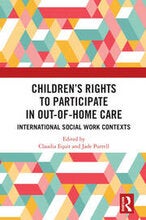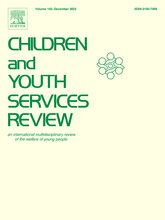This page contains documents and other resources related to children's care in the Americas. Browse resources by region, country, or category.
Displaying 221 - 230 of 3191
PANAMA CITY, 5 December 2022 - Amidst growing migration flows, violence, and climate hazards, an estimated 16.5 million children in Latin America and the Caribbean will require humanitarian support in 2023, UNICEF alerted today at the launch of its Humanitarian Action for Children appeal.
There was a moment in Cara Courchene's life when reuniting with her children seemed out of reach.
There was a moment in Cara Courchene's life when reuniting with her children seemed out of reach. The child welfare system seems stacked against parents like her, but one Indigenous-led program has had remarkable success in trying to change that. In 98 per cent of cases, the Family Group Conference program either reunited children with families who love them, or prevented a child from entering the child welfare system in the first place.
Unless the treatment of a child makes headlines (for example, when a child dies), Americans rarely think about the agencies charged with child protection. So, the system that handles more than 3.5 million cases a year gets little public scrutiny, in part because the people most affected are poor.
Matthew Fletcher, a law professor at the University of Michigan, where he teaches and writes about federal Indian law and American Indian tribal law, discusses the Indian Child Welfare Act and the U.S. Supreme Court case that could weaken this law, and Native American sovereignty.
Linking adoption to abortion so casually, with no further elaboration, reveals a particular view of the world. The logic seems so clear: Lots of parents want to adopt babies, the babies who will no longer be aborted could be those babies. Two incredibly complex social issues, one easy almost-beautifully reductive solution. But of course, the reality isn’t so simple.
On 25 September 2022, a referendum was held in Cuba to approve the Family Code 2022. The historic new legislation, which is widely celebrated as one of the “most progressive codes of families”, provides important, strengthened measures for the protection of children and adolescents across the country.
The U.S. Supreme Court is considering a challenge to the Indian Child Welfare Act, also known as ICWA, enacted in 1978 to put in place adoption protections for Native American and Alaska Native children. If those protections are overturned, it would make it easier for non-native families to adopt a native child.
In this U.S.-based study, the authors found that increasing the affordability of fostering a child could increase foster care capacity. They examine the impacts of changing economic conditions on the number of children in foster care.
This volume covers a broad spectrum of current research findings concerning the participation of young people in foster families and residential living groups in Australia, Canada, Germany, Ireland, Italy, Portugal, Norway, Sweden, and Switzerland as well as cross-nationals perspective on children and young people’s participation in foster and residential care placements in Great Britain and France.

This is the story of three people deeply touched by American safe haven laws.


